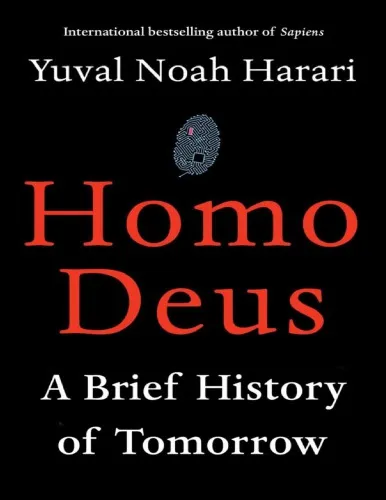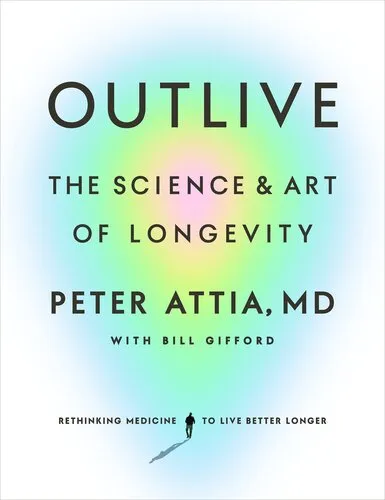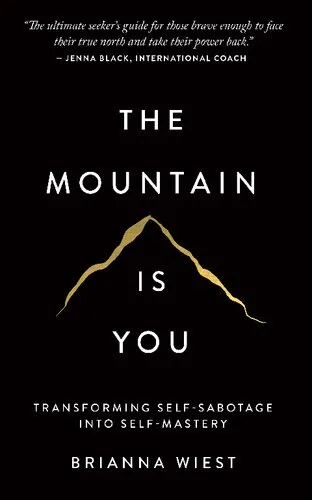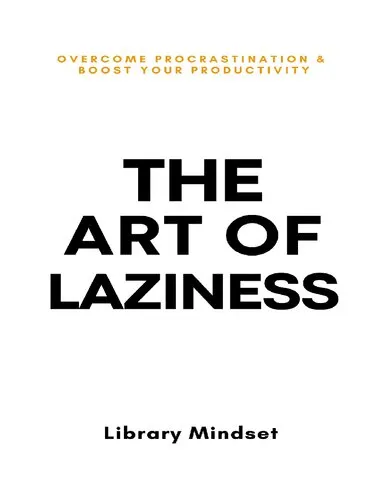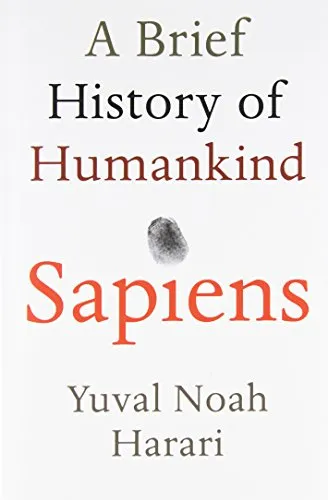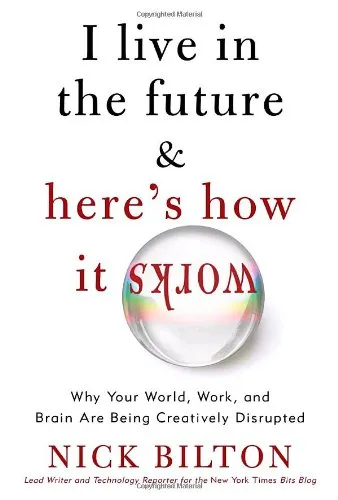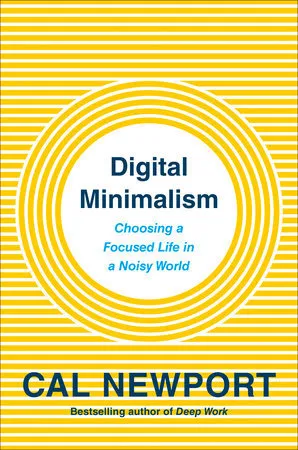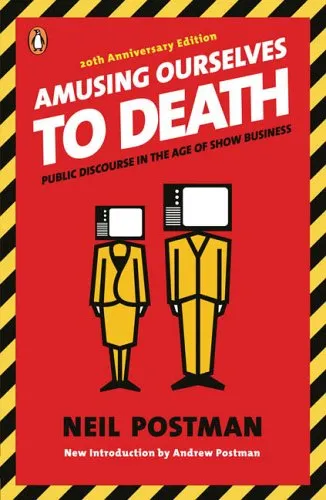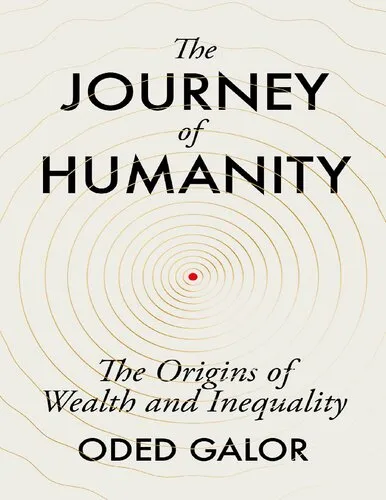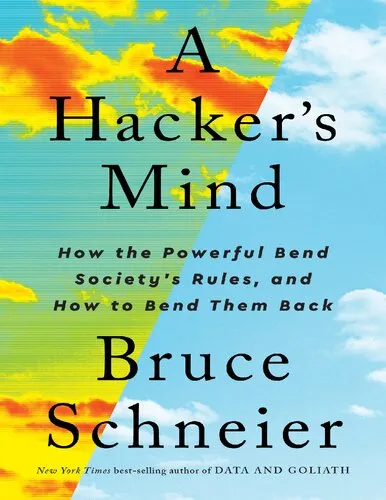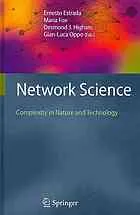Homo deus: a brief history of tomorrow
4.5
بر اساس نظر کاربران

شما میتونید سوالاتتون در باره کتاب رو از هوش مصنوعیش بعد از ورود بپرسید
هر دانلود یا پرسش از هوش مصنوعی 2 امتیاز لازم دارد، برای بدست آوردن امتیاز رایگان، به صفحه ی راهنمای امتیازات سر بزنید و یک سری کار ارزشمند انجام بدینکتاب های مرتبط:
معرفی کتاب 'انسان خداگونه: تاریخ مختصر فردا'
کتاب 'انسان خداگونه: تاریخ مختصر فردا' نوشته یووال نوح هراری، یک بررسی جامع و جالب در مورد تحولات آینده بشر است. در این کتاب، هراری به ما نشان میدهد که چگونه فناوریها و دستاوردهای علمی و پزشکی میتوانند آینده ما را شکل دهند.
خلاصهای جامع از کتاب
کتاب 'انسان خداگونه' با تحلیل پیشرفتها و دستاوردهای بشری در قرون اخیر شروع میشود و به بررسی آینده احتمالی بشریت میپردازد. هراری توضیح میدهد که چگونه Homo sapiens از موجوداتی شکارچی و جمعآور به فرمانروایان سیاره زمین تبدیل شدند. او تحلیل میکند که چگونه انسانها با دستاوردهای علمی و تکنولوژیکی میتوانند به جایگاه 'خداگونه' برسند، جایی که قادر به ساخت و تغییر زندگی به شکل دلخواه خود هستند.
هراری سوالات اساسی مطرح میکند: اگر بشر توانایی شکست مرگ و افزایش هوش مصنوعی را پیدا کند، چه سرنوشتی در انتظار انسانها خواهد بود؟ آیا در آینده، نژاد انسانی که ما میشناسیم به کلی تغییر خواهد کرد؟
نکات کلیدی
- انسانها به تدریج به دنبال شکست مرگ و به دست آوردن جاودانگی هستند.
- پیشرفت در هوش مصنوعی و بیوتکنولوژی میتواند انسانها را به موجودات دیگری تبدیل کند.
- آیندهای که هراری تصویر میکند، پر از فرصتها و چالشهای جدید برای بشریت است.
- هوش مصنوعی و Dataism میتوانند بر سیاست و اقتصاد جهانی تسلط یابند.
جملات معروف از کتاب
«آینده بشریت به جایگاه تکاملی برتر از Homo sapiens حرکت میکند، جایی که ممکن است به خالقان جدید تبدیل شود.»
«انسانها همیشه سعی کردهاند که مرگ را فریب دهند، اما اکنون برای اولین بار، ممکن است در آن موفق شوند.»
اهمیت کتاب
کتاب 'انسان خداگونه' بیش از یک کتاب در مورد آینده بشریت است؛ این یک تحلیل عمیق از فرصتها و چالشهایی است که پیش رو داریم. هراری به خوبی توضیح میدهد که چگونه علم و فناوری میتوانند باعث تغییرات اساسی در زندگی ما شوند و تاثیر گستردهای بر جامعه داشته باشند. او همچنین ما را به تفکر درباره پیامدهای اخلاقی و اجتماعی این تغییرات دعوت میکند. این کتاب به خوانندگان کمک میکند تا درک عمیقتری از مسیر پیش روی بشریت پیدا کنند و برای تحولات احتمالی آماده شوند.
Introduction to 'Homo Deus: A Brief History of Tomorrow'
In "Homo Deus: A Brief History of Tomorrow," Yuval Noah Harari explores the future of the human race by scrutinizing the past. Arguably a continuation of his earlier work "Sapiens: A Brief History of Humankind," this book delves into the core ambitions and aspirations of humanity as we move forward in the 21st century. Harari raises questions about the future—our potential evolutions, achievements, and challenges—as the digital age redefines human existence. Employing a rich blend of historical anecdotes, philosophical contemplations, and futuristic foresight, the book serves as both a warning and a guiding light for what may lie ahead.
Detailed Summary of the Book
Harari presents a compelling narrative that examines how humans have historically been shaped by various forces like famine, plague, and war—limiting factors which have increasingly been brought under control due to scientific advancement. He proposes that the traditional quests of surviving these existential threats have now morphed into aspirations of transcending our biological limitations. In doing so, Harari targets potential future goals of humanity, such as achieving immortality, bliss, and divinity.
Exploring fields as diverse as biotechnology and artificial intelligence, Harari posits that humanity is on the brink of a new era, one where Homo sapiens could transform into Homo deus—god-like beings with the capabilities to reshape not only their environment but also themselves at a fundamental level. This raises important ethical and philosophical questions about how these capabilities should be harnessed and the potential consequences if they go unchecked.
Each chapter confronts the reader with thought-provoking scenarios, from enhancing human cognition to creating non-organic life. While optimistic about technological progress, Harari also warns of the threats posed by totalitarian regimes and the monopolization of data by elite corporations, painting a complex picture of the future.
Key Takeaways
- Modern priorities have shifted from survival to augmenting the human experience.
- Humanity's quest for knowledge and power could lead to significant transformations of human life itself.
- Technological advancements present both exciting opportunities and existential risks.
- The control and ethical management of data will be crucial in shaping the future.
- It explores the idea of new post-human or transhuman possibilities and what these mean for our understanding of life, intelligence, and consciousness.
Famous Quotes from the Book
"History is something that very few people have been doing while everyone else was ploughing fields and carrying water buckets."
"The most common reaction of the human mind to achievement is not satisfaction, but craving for more."
"Once you really solve a problem like direct brain-computer interfaces, you don’t need to solve Alzheimer’s any more."
Why This Book Matters
"Homo Deus: A Brief History of Tomorrow" is more than just an exploration of possible futures; it is a critical examination of the path humanity is on and the choices that will shape our destiny. This book matters because it challenges readers to reconsider their preconceptions about progress and the human condition. By integrating historical knowledge with cutting-edge technological discourse, Harari not only ignites a dialogue about the potential of mankind but also reminds us of our responsibilities.
The book encourages individuals, policymakers, and societies at large to engage with profound ethical questions, encouraging the careful and considerate application of technology in shaping the future. As we stand on the threshold of unprecedented change, "Homo Deus" helps guide the discourse on how to harness the tools of tomorrow to create a better world for all.
دانلود رایگان مستقیم
شما میتونید سوالاتتون در باره کتاب رو از هوش مصنوعیش بعد از ورود بپرسید
دسترسی به کتابها از طریق پلتفرمهای قانونی و کتابخانههای عمومی نه تنها از حقوق نویسندگان و ناشران حمایت میکند، بلکه به پایداری فرهنگ کتابخوانی نیز کمک میرساند. پیش از دانلود، لحظهای به بررسی این گزینهها فکر کنید.
این کتاب رو در پلتفرم های دیگه ببینید
WorldCat به شما کمک میکنه تا کتاب ها رو در کتابخانه های سراسر دنیا پیدا کنید
امتیازها، نظرات تخصصی و صحبت ها درباره کتاب را در Goodreads ببینید
کتابهای کمیاب یا دست دوم را در AbeBooks پیدا کنید و بخرید
